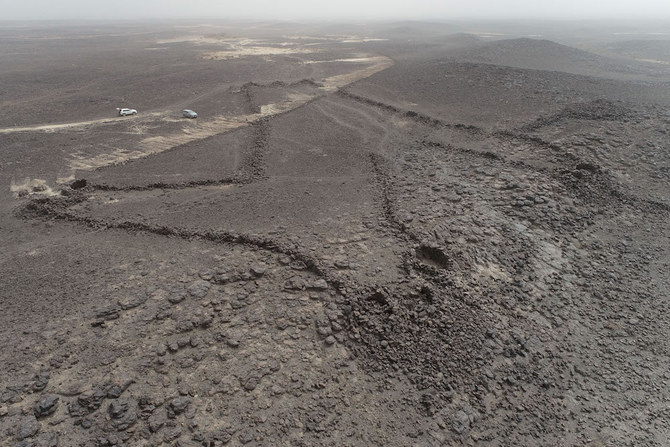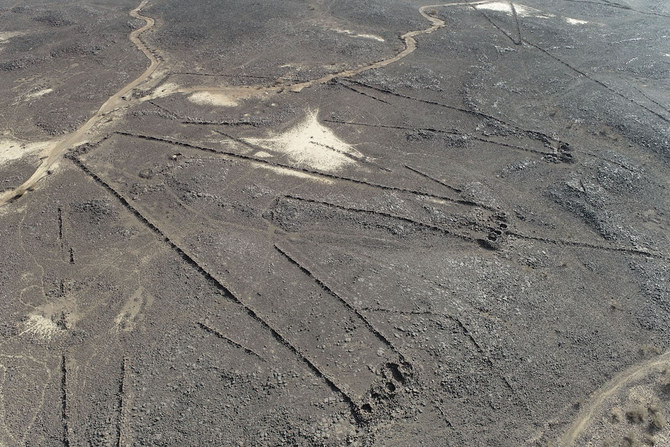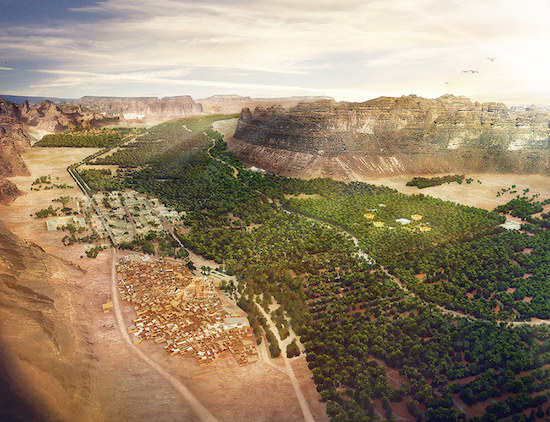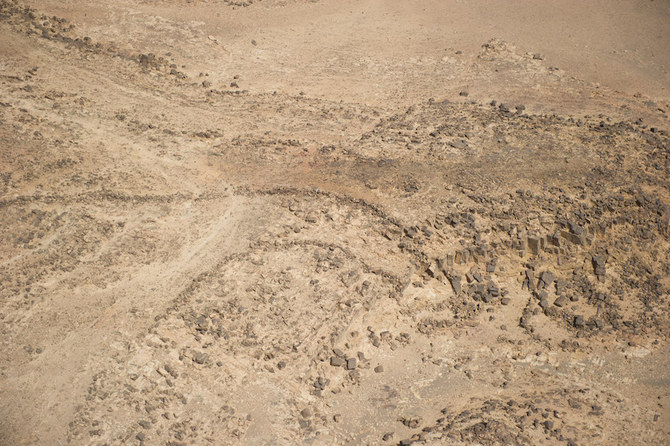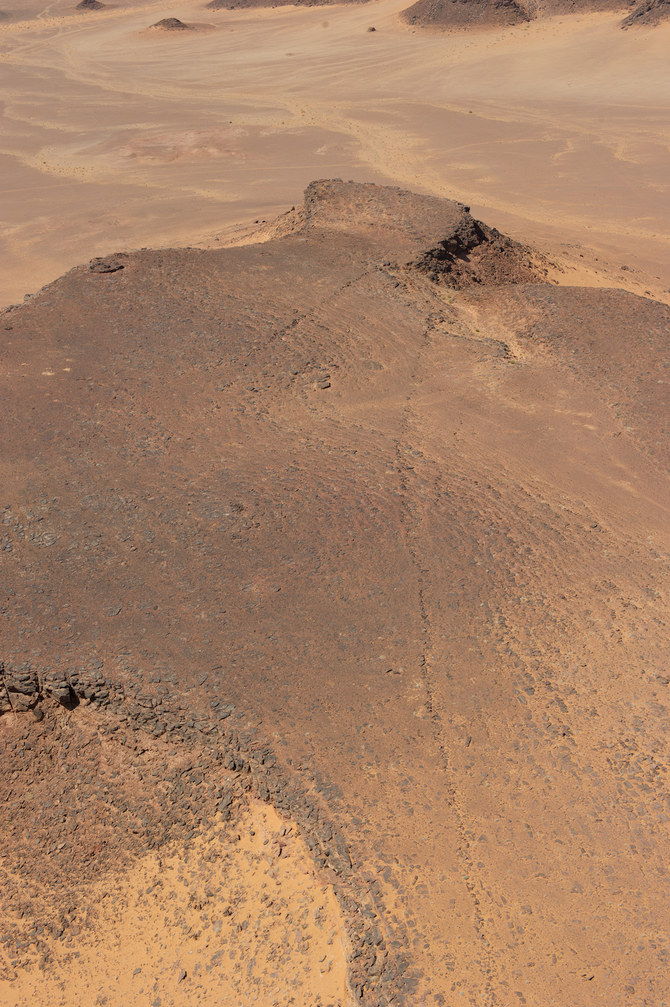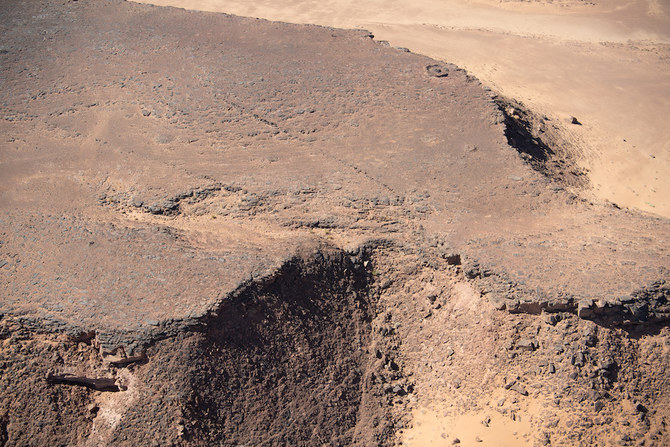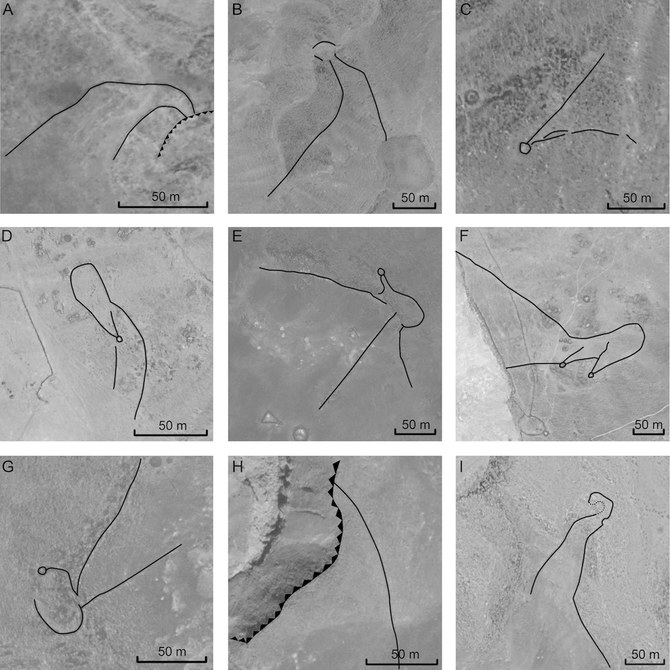JEDDAH: New research has shed fresh light on the origins and evolution of a series of ancient stone animal traps, known as desert kites, in AlUla.
Sponsored by the Royal Commission for AlUla, the studies reveal fascinating evidence about the innovative and collaborative methods local people used thousands of years ago to hunt wild animals.
According to a report published by the Journal of Archaeological Science, the stone-built traps got their name from the pilots who flew over the region in the 1920s and saw a resemblance in their shape to a child’s kite with streamers.
According to Dr. Remy Crassard, an expert on desert kites, the traps are some of the largest structures of their era, with the oldest examples, in southern Jordan, dating back to 7000 B.C.
He said that while the exact age of the recently discovered kites in northwest Arabia was still being calculated, they appeared to straddle the transition from the Late Neolithic to the Bronze Age (5000–2000 B.C.).
Crassard — who is affiliated with France’s National Center for Scientific Research and a co-director of the Khaybar Longue Durée Archaeological Project, which is sponsored by the RCU and its strategic partner Afalula (the French agency for the development of AlUla) — estimates there to be about 6,500 kites in the region, up from 700 to 800 known sites 20 years ago, and the number is rising.
During their research in Saudi Arabia, Jordan, Armenia and Kazakhstan, Crassard and his team determined that the kites were specifically used for hunting wild animals, rather than keeping livestock.
The development of the massive traps had had a spectacular impact on the landscape, he said, as they would have forced migratory animals, like gazelles, to change their routes and could even have been responsible for the extinction of some species.
In Saudi Arabia, research conducted by a team from the University of Western Australia and sponsored by the RCU found 207 kites in AlUla and the neighboring extinct volcano area of Harrat Uwayrid.
Most kites in the region are formed of low stone walls designed to funnel prey animals toward a trap, such as a pit or precipice. While they come in different shapes, the ones found by the Australian team, led by Rebecca Repper, were mostly V-shaped.
The driving lines of the AlUla kites are about 200 meters in length, but similar constructions in other places stretch for kilometers. Researchers say their placement suggests the hunters had a keen understanding of the animals’ movements.
Dr. Rebecca Foote, director of archaeology and cultural heritage research at the RCU, said the studies added to the growing understanding of the rich cultural heritage of the people of northwest Arabia.
“The recent studies expand on our earlier discoveries of the Neolithic period in the region, including the construction of large-scale ritual structures,” she said.
“Under the sponsorship of the RCU, and as we embark on the autumn season, we look forward to many more insightful findings in cooperation with international teams from Saudi Arabia, France, Australia, Germany and other countries.”
The collaborations are part of the RCU’s plan to create a global archaeological research and conservation hub in AlUla. At the heart of this is the Kingdoms Institute, which is located amid the ruins of the ancient North Arabian Kingdom of Dadan and dedicated to the study of the history and prehistory of the Arabian Peninsula.
Dr. Ingrid Périssé Valéro, director of archaeology and heritage at Afalula, said the newly found kites in AlUla and Khaybar opened up important perspectives on their origins and development, which marked a milestone in the history of human evolution and mankind’s relationship with the natural environment.


